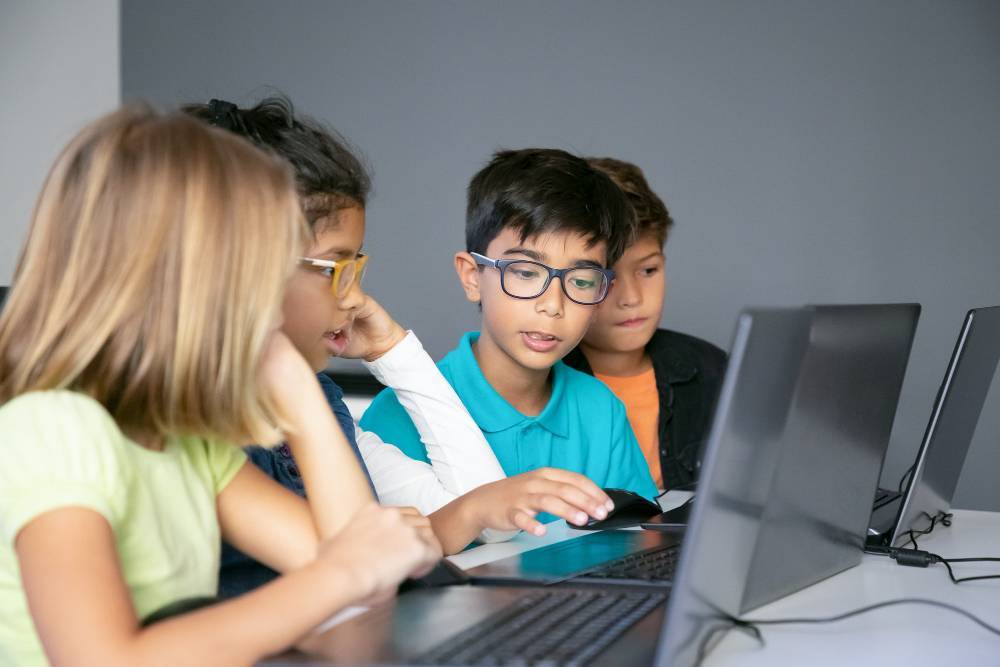Can Children Be Taught To Code?

As any discerning parent would know, when it comes to technology, children are light years ahead of adults. Gadgets that puzzle adults would be literally child’s play to a child. This is because a child’s mind is ‘unpolluted’ by a lot of information, experience and memories. They are free to imagine and to create. One reason why children love stories is that they can imagine and visualize the story line. If children are imaginative and creative, can they be taught to code?
The short answer to that question is ‘yes’. In fact, children as early as five years old can learn coding if programming concepts are presented in the form of a game such as a block-based coding programme. Older children can start with text-based coding and move on to more complex concepts. The methods can vary depending on the age of the child, but the general consensus among educators is that age is not a barrier to learning coding. In fact, several countries are introducing coding as part of school curriculum. So, what are the benefits of learning coding at an early age?
1. Learning to code enhances computational thinking
Computational thinking is a set of skills that help solve problems. It consists of breaking down a difficult problem, spotting patterns in the data, choosing the most relevant aspects and planning step by step how to solve the problem. This is what a person does when coding. When children learn to code, they are gaining invaluable insight into problem solving in the real world. The skills they gain while learning to code will stand them in good stead in solving real life problems.
2. Coding encourages creativity
Coding is essentially problem solving, and one can solve a problem in multiple ways. In fact, there are endless possibilities as to what to create and how to create it using code. One can create anything they dream up, from games to websites to programs. Coding is an activity that tells a computer what to do and how to behave, and children with their ability to imagine and visualize can do wonders with it. Also, when their code doesn’t work as it was intended to do, they have to find creative solutions to the problem.
3. Learning to code promotes resilience
Resilience or grit is the ability to bounce back after a failure. It is the perseverance to stay with the problem despite multiple attempts to solve it fails. Coding promotes exactly this because it is rare that a person writes perfect code the first time. Especially, debugging your code requires the ability to not give up till you find the right solution. Resilient kids who learn through trial and error become successful adults.
Related reading: How To Get Your Kids Excited About Coding
4. Coding enhances independent learning and thinking
Unlike a science or history assignment for which there may be multiple resources available, a coding problem rarely has solutions in a book or online. Coders do not have readymade solutions they can apply to the problems at hand. They have to come up with their own code to do what they want the computer to do. This encourages independent learning and thinking – the skills that are so very important in thriving in the 21st century.
5. Coding nurtures academic excellence
Simply put, learning to code makes children do better at school. The logical thinking and problem solving skills developed as part of coding are transferrable to learning math and science by activating the regions of the brain responsible for attention, verbal and numerical memory, language processing and pattern recognition.
6. Knowing how to code is a highly marketable skill
In the 21st century tech-friendly world, there is a huge demand for people who know how to code. Computer science and programming job opportunities will increase exponentially in the coming decades, and they are very lucrative fields. When a child learns to code, he may be preparing for a future career in technology, and as parents and educators we will do well encourage such ambitions.
7. Coding is fun!
Well, if there is no other reason, this should suffice to let a child learn to code. Coding is one of those rare activities that are fun and educational at the same time. As a hobby or as a life-long passion, coding is an incredibly fulfilling activity as it is so very satisfying to find answers to puzzling problems. This is one after-school activity that children will look forward to, and parents would not have to pressurize them into doing.
Related reading: How to Teach your Kids How to Code – Without Force-feeding Them


